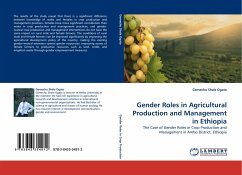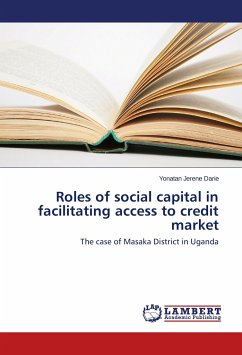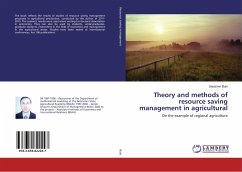The results of the study reveal that there is a significant difference between knowledge of males and females in crop production and management practices, females have more significant contribution than males in crop production and management practices, and gender-neutral crop production and management interventions do not have the same impact on rural male and female farmers. The conditions of rural male and female farmers can be improved significantly by improving the agricultural development policy of the country, making the existing gender-neutral extension system gender responsive, improving access of female farmers to productive resources such as land, credit, and irrigation water through gender empowerment measures.
Bitte wählen Sie Ihr Anliegen aus.
Rechnungen
Retourenschein anfordern
Bestellstatus
Storno








